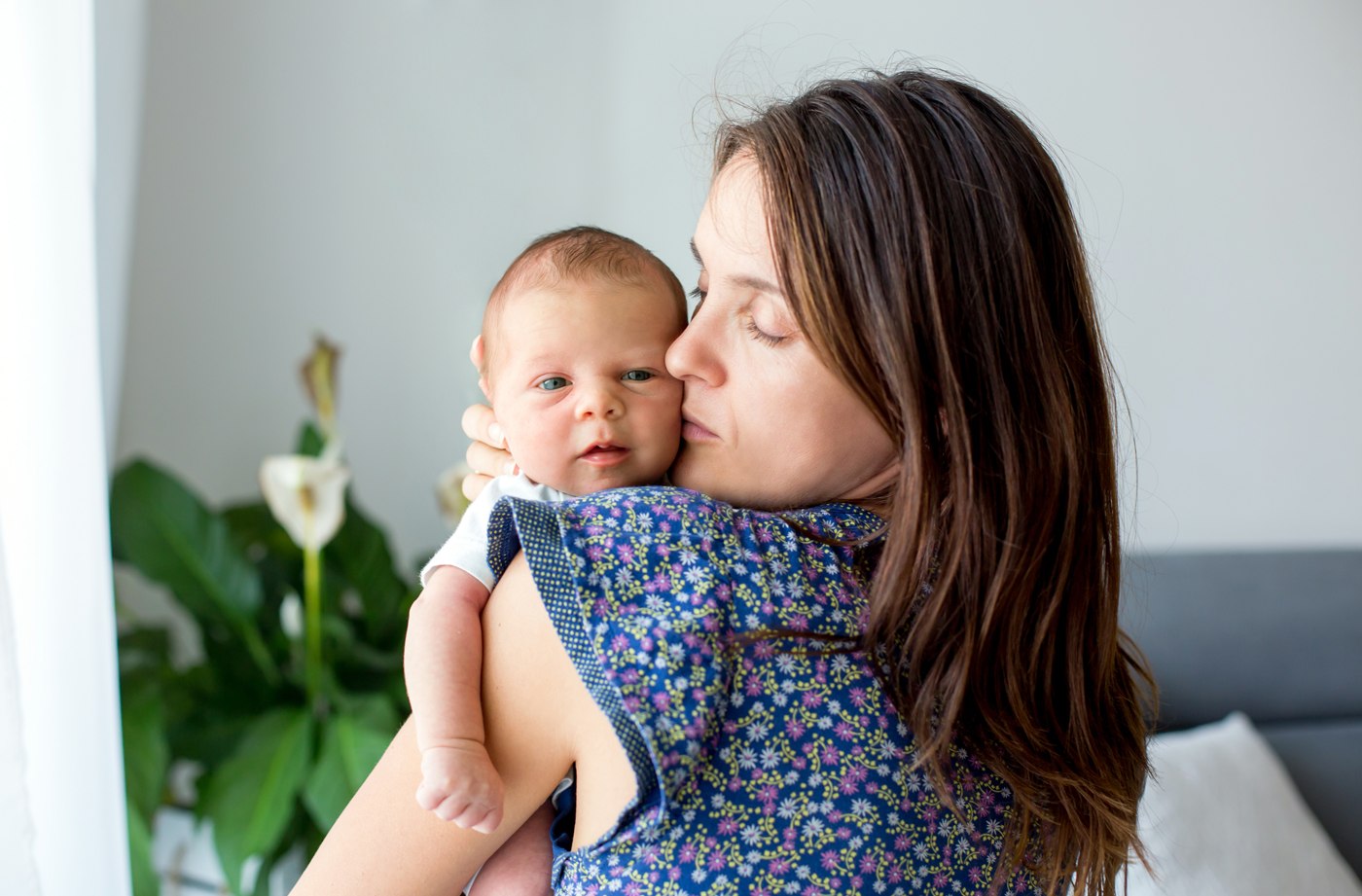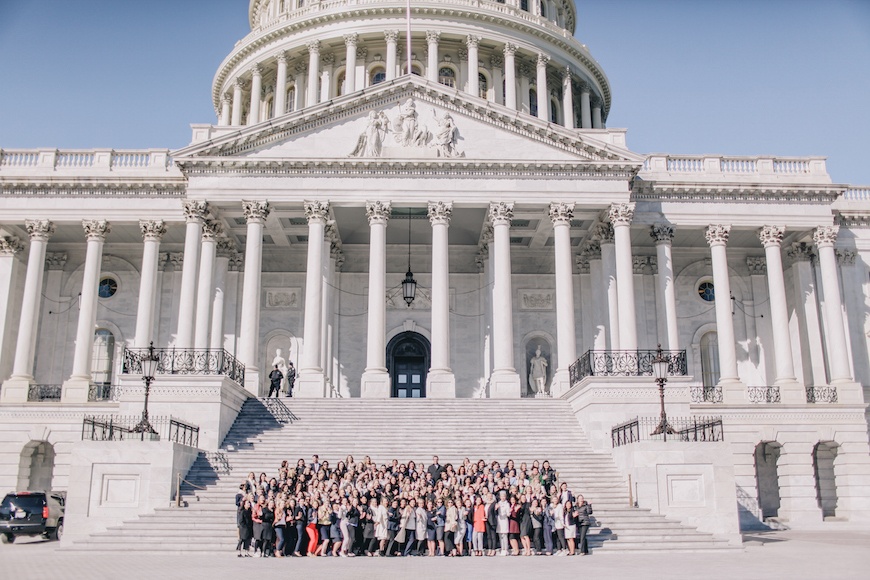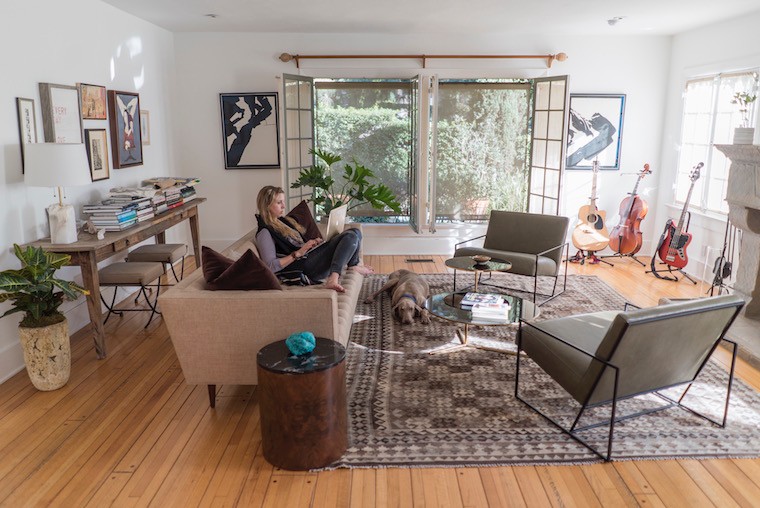The 11 articles on this list dared to tackle big, messy, scary topics: I’m talking the opioid crisis, suicide, lobbying for cleaner beauty products in Washington, gender fluidity in the fashion industry, and more.
So, these stories might not be the "best" Well+Good had to offer—because who am I to act as final arbiter of quality?—but they’re ones that raised our standard of reporting and storytelling this year. Looking back at them now, I’m so excited to reach even higher heights in 2019.

America’s mothers are isolated, anxious, and depressed—here’s why
From ideation to completion, this story took Erin Bunch months. But you can see the thoroughness of her reporting and the care with which she chose her words in every well-thought-out word of this opus on postpartum depression in America.

{{post.sponsorText}}
Is CBD legal? Does it even work? It’s time to clear the haze of confusion surrounding the “miracle” ingredient
As Erin Magner puts it in this story, CBD is the cool girl of the wellness world—right down to its air of mystery. For all the claims that CBD will “change your life,” not much is known about how or why the cannabinoid works—or whether it does at all. In this piece, Erin examines the evidence in the clearest, easiest to understand way I’ve seen this topic covered to date—period.
When it comes to gender, for a number of fashion brands, the feeling is neutral
There’s trend-spotting, and then there’s the kind of cultural forecasting Tamim Alnuweiri does in this story. As she lays out with keen reporting and compelling evidence here, the future of fashion is non-binary.

What I learned by lobbying for safer cosmetics in Washington—and what’s at stake for you
Well+Good beauty editor Rachel Lapidos took her lobbying for clean, safe beauty products from the computer to the capital when she traveled to Washington for a boots-on-the-ground look at the efforts to pass the Personal Care Products Safety Act (PCPSA) in Congress.
ConBody’s success is forcing the fitness world to confront some uncomfortable truths
Why are affluent white women shelling out $32 a class to sweat at what feels a lot like a prison theme park? Natalia Mehlman Petrzela dives into the cultural significance—and stickiness—of the ConBody phenomenon.
A psychiatrist shares how to talk about suicide
“Suicide is a word like cancer. We don’t like to say it, and talking about it makes us uncomfortable,” psychiatrist Drew Ramsey, MD, a member of our Well+Good Council, writes in this important piece. But after the deaths of Anthony Bourdain and Kate Spade (both by suicide) made headlines this year, the topic became unavoidable. It’s about time we learn to talk about it.
Yes, you *can* be pro-wellness and pro-science at the same time
That the wellness industry is full of quacks is a stereotype I have to confront far too often. Now, when someone heads down this logical slippery slope, I just send them Erin Hanafy’s impeccably argued op-ed.

How women are reclaiming the home as a source of empowerment
Arden Fanning Andrews christened the launch of our Good Home vertical in early 2018 with this insightful story. Arden speaks to five women for whom the home—“the place our grandmothers were consigned to,” as she puts it—has become a major vehicle for self-care and inspiration.
“He was kind, loving, and sweet, but his addiction was the one thing everyone focused on”
Emily Laurence’s talent for compassionate reporting is on full display in this heart-wrenchingly close look at the far-reaching affects of the opiod crisis.
Audio-only workout apps are going to transform your fitness routine for the better
At Well+Good, we pride ourselves on living on the cutting edge of the wellness industry—and stories like this from Kells McPhillips are why. You might not have downloaded a trainer for your ear pods yet, but you will soon.
Before fashion can fix its size inclusivity problem, we all need to understand what’s causing the issue
Considering the average American woman is a size 16-18, making clothes larger than a size 14 makes good business sense—so why is the industry so slow to catch on? When Annie Tomlin digs into the issue, she finds that the answer has fashion companies going back to the drawing board.
And that's not all, folks! Take a look at the most impactful personal essays and most-read stories we published this year.
Loading More Posts...